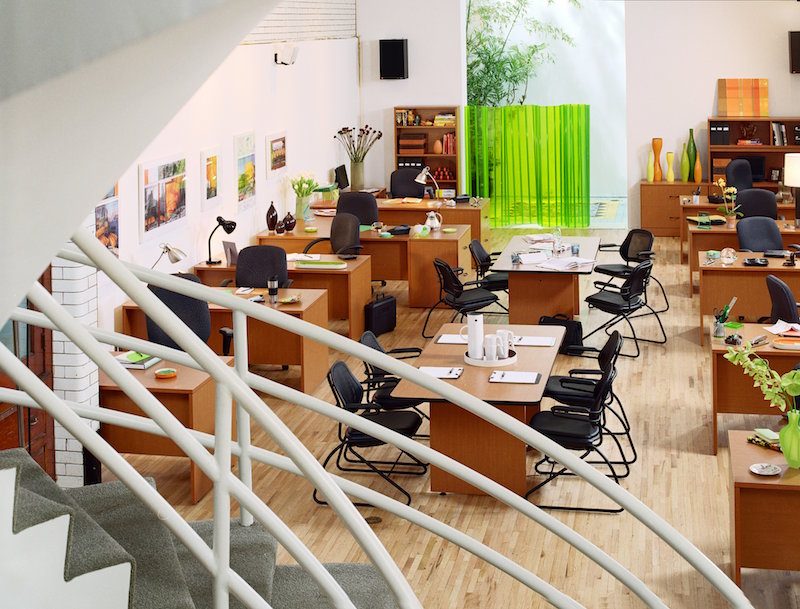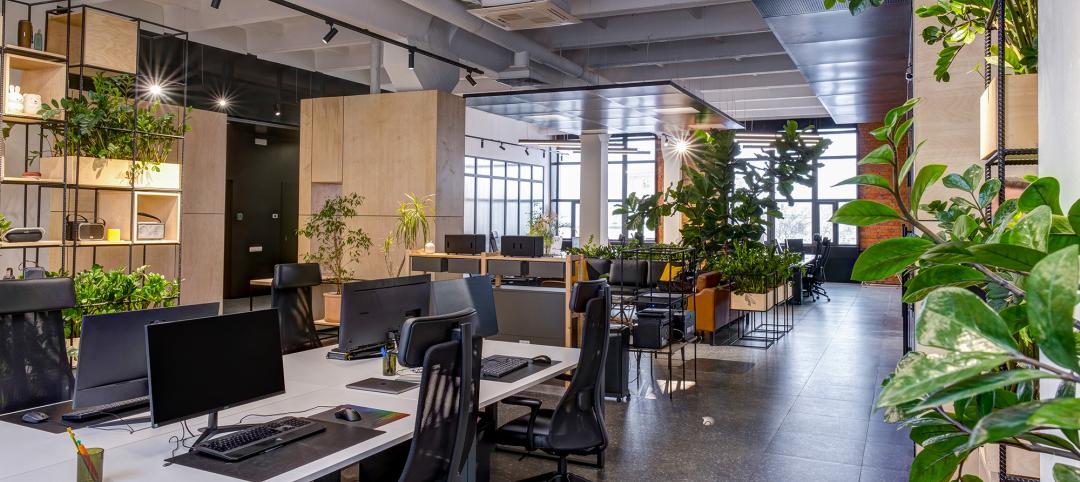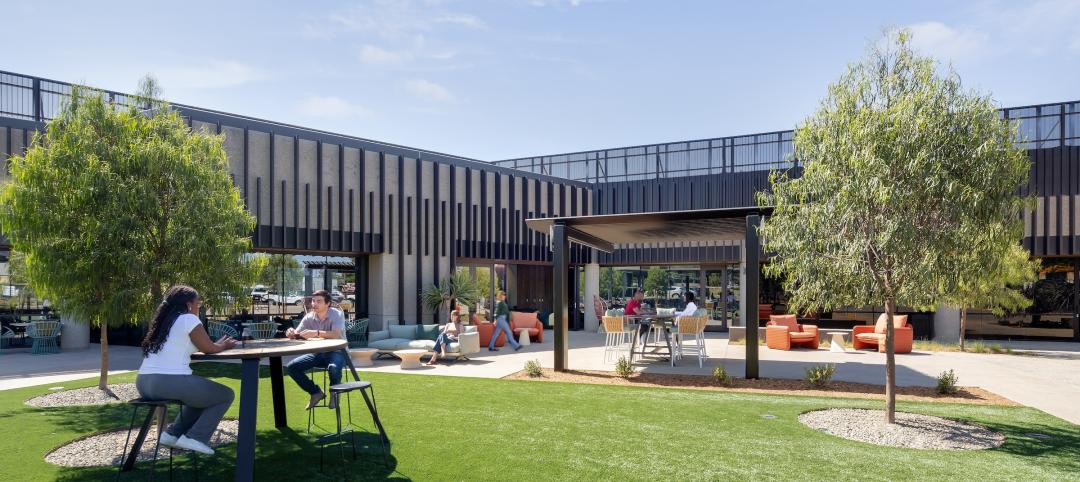With total U.S. construction starts projected to rise by 6 percent in 2016, the construction industry continues on its steady rise. Its expansion is contributing to an increase in corporate projects and profits. To make the most of the upturn, construction companies are having to focus on keeping costs low, working to allocate resources in the most efficient and effective manner possible.
As commercial and institutional building starts increase, it is essential to keep your company’s current projects on time and on budget, all while pursuing the market’s wealth of new leads. One way this challenge can be met is by exploring options that avoid investing time and money into purchasing and managing permanent assets.
There are many benefits to renting instead of purchasing assets for a construction site. Construction sites are dynamic, ever changing and require temporary workspaces to get the job done. Instead of purchasing resources to fill these transitory spaces, renting or leasing equipment that is needed for only the duration of the project can often reduce your company’s capital expenditures. Rental helps to ensure that your time and money is spent managing the projects, not the assets. Several kinds of on-site resources can be leased with these benefits.
For example, furniture rental is a viable alternative to purchasing permanent assets. Furniture rental eliminates the costs of storing on-site furniture between projects, making it an even more financially sound option. Its flexible nature allows you to avoid being stuck with outdated assets. As the needs of the construction site change, rented assets can easily be added or removed to match your company’s current situation, without jeopardizing your time or budget.
One of the greatest benefits of leasing over purchase is the reduced amount of time you are required to spend managing it. Its adaptable nature is designed to help you keep up with the fluctuating lifecycle of construction starts, without wasting your time.
Managing projects and budget is crucial to the success of construction companies. To learn more about how furniture rental can help on your next project, visit CORT.com.
Related Stories
M/E/P Systems | Oct 30, 2024
After residential success, DOE will test heat pumps for cold climates in commercial sector
All eight manufacturers in the U.S. Department of Energy’s Residential Cold Climate Heat Pump Challenge completed rigorous product field testing to demonstrate energy efficiency and improved performance in cold weather.
MFPRO+ New Projects | Oct 30, 2024
Luxury waterfront tower in Brooklyn features East River and Manhattan skyline views
Leasing recently began for The Dupont, a 41-story luxury rental property along the Brooklyn, N.Y., waterfront. Located within the 22-acre Greenpoint Landing, where it overlooks the newly constructed Newtown Barge Park, the high-rise features East River and Manhattan skyline views along with 20,000 sf of indoor and outdoor communal space.
Resiliency | Oct 29, 2024
Climate change degrades buildings slowly but steadily
While natural disasters such as hurricanes and wildfires can destroy buildings in minutes, other factors exacerbated by climate change degrade buildings more slowly but still cause costly damage.
Hotel Facilities | Oct 29, 2024
Hotel construction pipeline surpasses 6,200 projects at Q3 2024
According to the U.S. Hotel Construction Pipeline Trend Report from Lodging Econometrics, the total hotel pipeline stands at 6,211 projects/722,821 rooms, a new all-time high for projects in the U.S.
Office Buildings | Oct 29, 2024
Editorial call for Office Building project case studies
BD+C editors are looking to feature a roundup of office building projects for 2024, including office-to-residential conversions. Deadline for submission: December 6, 2024.
Healthcare Facilities | Oct 28, 2024
New surgical tower is largest addition to UNC Health campus in Chapel Hill
Construction on UNC Health’s North Carolina Surgical Hospital, the largest addition to the Chapel Hill campus since it was built in 1952, was recently completed. The seven-story, 375,000-sf structure houses 26 operating rooms, four of which are hybrid size to accommodate additional equipment and technology for newly developed procedures.
Contractors | Oct 25, 2024
Construction industry CEOs kick off effort to prevent suicide among workers
A new construction industry CEO Advisory Council dedicated to addressing the issue of suicide in the construction industry recently took shape. The council will guide an industry-wide effort to develop solutions targeting the high rate of suicide among construction workers.
Sports and Recreational Facilities | Oct 24, 2024
Stadium renovation plans unveiled for Boston’s National Women’s Soccer League
A city-owned 75-year-old stadium in Boston’s historic Franklin Park will be renovated for a new National Women’s Soccer League team. The park, designed by Fredrick Law Olmsted in the 1880s, is the home of White Stadium, which was built in 1949 and has since fallen into disrepair.
Laboratories | Oct 23, 2024
From sterile to stimulating: The rise of community-centric life sciences campuses
To distinguish their life sciences campuses, developers are partnering with architectural and design firms to reimagine life sciences facilities as vibrant, welcoming destinations. By emphasizing four key elements—wellness, collaboration, biophilic design, and community integration—they are setting their properties apart.
Adaptive Reuse | Oct 22, 2024
Adaptive reuse project transforms 1840s-era mill building into rental housing
A recently opened multifamily property in Lawrence, Mass., is an adaptive reuse of an 1840s-era mill building. Stone Mill Lofts is one of the first all-electric mixed-income multifamily properties in Massachusetts. The all-electric building meets ambitious modern energy codes and stringent National Park Service historic preservation guidelines.

















